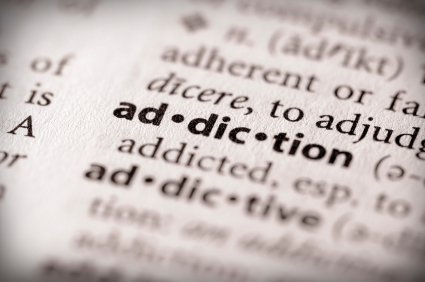Definition of Addiction
Historically, addiction has been viewed as a moral failing. Addicts, it was thought, lacked willpower and gave in to their baser desires. As understanding about how the brain works improved, however, data started to support a disease rather than a moral model of addiction. The disease model itself has not remained static. It’s most basic aspect — the definition of addiction — has undergone full-scale revision over the decades.
Early on, addiction treatment was limited to the most immediate problem, detox. This was reflected in the earliest definition of addiction: tolerance to and dependence on a drug. Tolerance means that the brain adapts to drugs and comes to need more and more of them over time. Dependence refers to dramatic withdrawal symptoms on cessation of drug taking.1 (For more, click on The Difference Between Hangover and Withdrawal). If quitting didn’t cause significant withdrawal, the drug wasn’t considered addictive. Conversely, the more medically serious the detox, the more addictive the drug was thought to be.2 
Better understanding of the brain forced scientists to rethink this definition. The link between the severity of withdrawal and addiction, for example, was contradicted by clear evidence. Though heroin was considered much more addictive than alcohol,3 heroin detox is rarely life threatening. In contrast, alcoholics risk delirium tremens (the D.T.s) during withdrawal, which can entail seizures, hallucinations, agitation, loss of consciousness, and for about 5% of those who get them, death. Furthermore, alcohol withdrawal, researchers noted, was usually more arduous than heroin detox.4 Thus, the severity of detox didn’t necessarily correspond to a drug’s addictiveness.
Researchers also observed that as use escalated, tolerance grew, resulting in worsening physical, social, and psychological consequences. Yet, addicts kept taking drugs compulsively, ignoring the repercussions. No rational person would do so. The earliest definition didn’t incorporate the obsessive and irrational nature of addiction.
Accordingly, a newer definition developed that holds that the essence of addiction is “compulsive drug seeking and use, even in the face of negative health and social consequences.”5 Addiction is also described as progressive. It gets worse over time because of the way tolerance intensifies. Finally, addiction is a “chronic relapsing disease,”6because experts say long-term drug use alters the brain’s structure and function. These brain changes remain “months and years after the last use of drugs,”7 helping to explain the high rates of relapse after treatment.8
Descent into addiction is described as a downward spiral from brain harmony to pathological imbalance.9 As tolerance grows, so does use — larger doses taken more frequently. Increased use intensifies the threat of withdrawal, which in turn can only be averted by further drug use, feeding the negative spiral. In this process, a new “set point” or “new normal” is established in which the brain requires drugs to maintain balance. This “new normal” requires drugs to keep the system functioning.10 The result is that addicts must take drugs continuously to prevent themselves from plummeting into the depths of withdrawal.11 Researchers say that while addicts “begin by taking drugs to feel high, they end up taking them in order not to feel low.”12
For the next article in the Addiction Science series click here.
To return to the Addiction Science menu click here.
1. A Range of Research-Based Pharmacotherapies for Addiction, Science, Oct. 3, 1997.
2. Addiction is a Brain Disease, and It Matters, Science, Oct. 3, 1997.
3.Addiction is a Brain Disease, and It Matters, Science, Oct. 3, 1997.
4. Both Genetics and Dopaminergenic Neurotransmission Have a Role in Delerium Temens, medicalnewstoday.com, Jan 30, 2007.
5. Addiction is a Brain Disease, and It Matters, Science, Oct. 3, 1997.
6. Addiction is a Brain Disease, and It Matters, Science, Oct. 3, 1997.
7. A Range of Research-Based Pharmacotherapies for Addiction, Science, Oct. 3, 1997.
8. Addiction is a Brain Disease, and It Matters, Science, Oct. 3, 1997.
9. Drug Abuse: Hedonic Homeostatic Dysregulation, Science, Oct. 3, 1997.
10. Drug Abuse: Hedonic Homeostatic Dysregulation, Science, Oct. 3, 1997.
11. Addiction: A Brain Disease, Not A Moral Lapse, New York Times, Sept. 30, 2003.
12. Addicted, Time Magazine, May 7, 1997.

[…] Fort Lauderdale back in 1987 for one year of my life. It was a very different time then! I was in active addiction and had just quit my dream job. I was a young man then, but very much on the wrong path. It truly […]